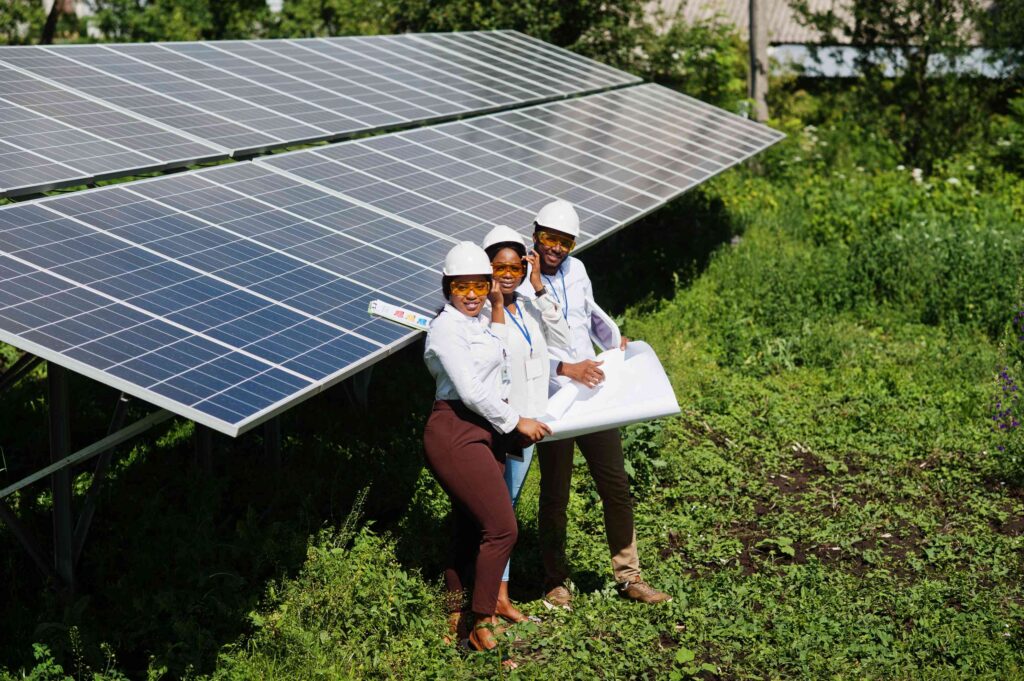Empowering Women-led Renewable Energy Businesses in Northern Nigeria: A Climate Finance Perspective
Climate change is not just an environmental crisis; it is a multifaceted challenge that affects every aspect of our lives, from the economy to social dynamics. In the African context, women play a crucial role in agriculture, natural resource management, and community resilience. However, they often face disproportionate vulnerabilities due to climate change. Climate finance is emerging as a powerful tool to empower African women and mitigate the impacts of climate change on their lives and communities.
At Sustainable Solutions for Green Growth (SSforGG), we’re on a relentless quest to find sustainable solutions to the pressing climate crisis and to champion grassroots sustainability. With innovation as our compass, technology as our toolkit, policy advocacy as our megaphone, and community support as our backbone, we are igniting a revolution in local communities throughout Nigeria and across the vast African continent. We are working with partners and collaborators around the world to bring this vision to life.

The African Context:
Africa is home to some of the most vulnerable communities to climate change. Extreme weather events, shifting rainfall patterns, and rising temperatures threaten food security, water availability, and livelihoods. Women, who make up a significant portion of the agricultural workforce and are responsible for household water and energy needs, are at the forefront of these challenges.
Challenges Faced by African Women:
Limited Access to Resources: Women in Africa often have restricted access to land, credit, and technology, hindering their ability to adapt to climate change and implement sustainable farming practices.
Unequal Burden: Climate change exacerbates existing gender inequalities. Women have to work harder to secure food, water, and fuel for their families, often walking longer distances to collect resources.
Lack of Representation: African women are underrepresented in decision-making processes related to climate change and resource management, limiting their influence on policies and initiatives.
The Role of Climate Finance:
Climate finance refers to the funding provided by various sources, including governments, international organizations, and private investors, to address climate change mitigation and adaptation efforts. When strategically channelled, climate finance can transform the lives of African women and promote gender equality in the face of climate change.
Empowering African Women through Climate Finance:
Access to Green Technologies: Climate finance can provide resources for women to access eco-friendly agricultural technologies, renewable energy solutions, and efficient cooking stoves. These innovations can reduce their workload, enhance productivity, and lower carbon emissions.
Capacity Building: Investments in education and training programs can equip women with the skills and knowledge needed to adapt to changing climate conditions and participate in climate-resilient livelihoods.
Microfinance and Savings: Climate finance can support microfinance initiatives tailored to women, enabling them to access credit and save money for investments in climate-resilient farming practices and income-generating activities.
Representation and Participation: Encouraging the participation of women in climate finance decision-making processes ensures that their unique perspectives and needs are considered when allocating resources and designing projects.
Community Resilience: Climate finance can fund community-based projects that enhance resilience to climate impacts, such as building water infrastructure, diversifying livelihoods, and improving disaster preparedness.
Challenges and Opportunities:
While climate finance offers immense potential for empowering African women, challenges such as bureaucracy, inadequate access to information, and gender-blind policies must be addressed. Governments, NGOs, and international organizations should work collaboratively to ensure that climate finance initiatives are gender-responsive and inclusive.
At Sustainable Solutions for Green Growth, we are championing climate action through our various initiatives like the Climate Risk Research, Women climate empowerment and training
